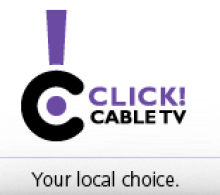Dubuque Considers Its Telecom Options
I caught an interesting article asking whether Dubuque, Iowa, should build a publicly owned broadband network. Iowa already has a number of publicly owned networks, mostly cable HFC networks, that serve communities.
The article starts with some history, noting that the small community of Hawarden, Iowa, was the first to build a public cable system in the state and had to defend its rights to do so in court.
The northwest Iowa community of about 2,500 people more than a decade ago built a $4 million cable system, only to be temporarily shut down by an Iowa Supreme Court injunction. Hawarden survived the court's order prohibiting municipalities from being in the telecommunications business, and in many respects blazed the trail for publicly run cable, Internet and phone service in Iowa.More communities may be considering building their own networks (though they will build now with fiber rather than HFC) following Iowa's statewide franchising rules that preempt local authority, giving greater power to private cable companies. The way it was written, existing franchise agreements may be nullified if a competitor announces plans to serve the community. Fortunately, many Iowa communities voted to formed telecommunications utilities back in 2005, though few have yet exercised that authority. Unfortunately, the article's author was clearly misled by either Qwest or Mediacom's public relations flacks because he wrote about UTOPIA, as though the problems of a purely open access model under a different regulatory environment poses important lessons for communities in Iowa that may build their own networks. The successes and failures of UTOPIA teach us very little about how Iowa communities should move forward. Smaller Iowa communities do have a serious disadvantage - building modern networks is very difficult the smaller they get. Below 5,000 subscribers, it can be difficult to make the network pay for itself (though exceptions exist) - suggesting to me that joint efforts combining communities could be a good option. Unfortunately, though the technology has no problems crossing political boundaries, the politics are much more difficult.



